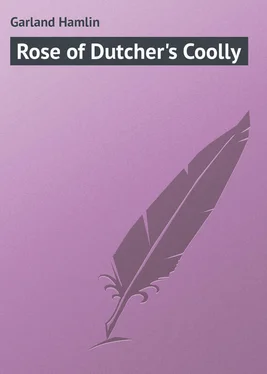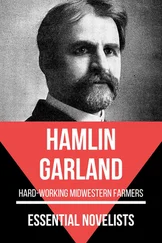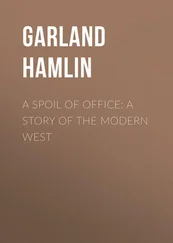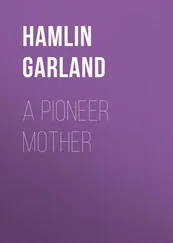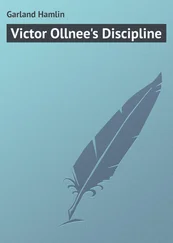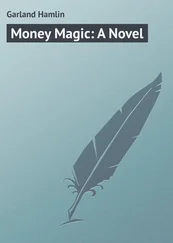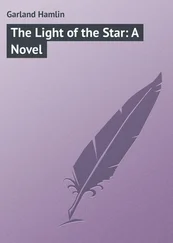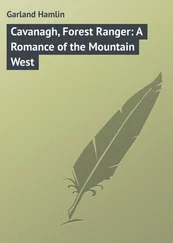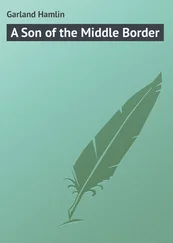Hamlin Garland - Rose of Dutcher's Coolly
Здесь есть возможность читать онлайн «Hamlin Garland - Rose of Dutcher's Coolly» — ознакомительный отрывок электронной книги совершенно бесплатно, а после прочтения отрывка купить полную версию. В некоторых случаях можно слушать аудио, скачать через торрент в формате fb2 и присутствует краткое содержание. Издательство: Иностранный паблик, Жанр: foreign_prose, на английском языке. Описание произведения, (предисловие) а так же отзывы посетителей доступны на портале библиотеки ЛибКат.
- Название:Rose of Dutcher's Coolly
- Автор:
- Издательство:Иностранный паблик
- Жанр:
- Год:неизвестен
- ISBN:нет данных
- Рейтинг книги:4 / 5. Голосов: 1
-
Избранное:Добавить в избранное
- Отзывы:
-
Ваша оценка:
- 80
- 1
- 2
- 3
- 4
- 5
Rose of Dutcher's Coolly: краткое содержание, описание и аннотация
Предлагаем к чтению аннотацию, описание, краткое содержание или предисловие (зависит от того, что написал сам автор книги «Rose of Dutcher's Coolly»). Если вы не нашли необходимую информацию о книге — напишите в комментариях, мы постараемся отыскать её.
Rose of Dutcher's Coolly — читать онлайн ознакомительный отрывок
Ниже представлен текст книги, разбитый по страницам. Система сохранения места последней прочитанной страницы, позволяет с удобством читать онлайн бесплатно книгу «Rose of Dutcher's Coolly», без необходимости каждый раз заново искать на чём Вы остановились. Поставьте закладку, и сможете в любой момент перейти на страницу, на которой закончили чтение.
Интервал:
Закладка:
As she worked about the house she took graceful attitudes, and wished he might see her; he would be pleased with her. The grace and power of her arm acquired new meaning to her. Her body, she recognized, had something the same statuesque pose of his. In the secrecy of her room she walked up and down, feeling the splendid action of her nude limbs muscled almost like his. And all this was fine and pure physical joy. Her idea remained indefinite, wordless.
These were days of formless imaginings and ambitions. "I will do! I will do!" was her ceaseless cry to herself, but what could she do? What should she do?
She could be wise; that she would be. So she read. She got little out of her reading that she could make a showing of, but still it developed her. It made her dream great things, impossible things, but she had moments when she tried to live these things.
Meanwhile her manners changed. She became absent-minded, and seemed sullen and haughty to her companions at times. She never giggled like the rest of the girls. She had fine teeth, and yet her smile was infrequent. She laughed when occasion demanded, and laughed heartily, but she was not easily stirred to laughter.
Just in proportion as she ignored the young beaux, so they thronged about her. One or two of them eyed her with a look which made her angry. She took refuge in Carl's company, and so escaped much persecution, for Carl was growing to be a powerful young man, with fists like mauls, and was respected among the athletes of the neighborhood.
She did not realize that she would need at some time to settle with Carl. She accepted his company as a matter of course. He filled social requirements for the time being.
Her teacher that winter was a plaintive sort of a little middle-aged man, a man of considerable refinement, but with little force. Rose liked him, but did not respect him as she had two or three of the men who had filled the teacher's chair. She could not go to him for advice.
As the winter wore on the figure of "William De Lisle" grew dimmer, but not less beautiful. Her love for him lost its under-current of inarticulate expectancy; it was raised into a sentiment so ethereal it would seem a breath of present passion would scatter it like vapor, and yet it was immovable as granite. Time alone could change it. He still dominated her thought at quiet times, at dark when the stars began to shine, but in the daytime he was faint as a figure in a dream.
CHAPTER VII
ROSE MEETS DR. THATCHER
The school-house in Dutcher's coulé, like most country school-houses, was a squalid little den. It was as gray as a rock and as devoid of beauty as a dry goods box. It sat in the midst of the valley and had no trees, to speak of, about it, and in winter it was almost as snow-swept as the school-houses of the prairie.
Its gray clap-boarding was hacked and scarred with knife and stone, and covered with mud and foul marks. A visitor who had turned in from the sun-smit winter road paused before knocking and looked at the walls and the door with a feeling of mirth and sadness. Was there no place to escape the obscene outcome of sexual passion?
Dr. Thatcher had been a pupil here in this same school-house more than twenty years before, and the droning, shuffling sound within had a marvelous reawakening power. He was a physician in Madison now, and was in the coulé on a visit.
His knock on the door brought a timid-looking man to the door.
"I'd like to come in awhile," said the Doctor.
"Certainly, certainly," replied the teacher, much embarrassed by the honor.
He brought him the chair he had been sitting on, and helped his visitor remove his coat and hat.
"Now don't mind me, I want to see everything go on just as if I were not here."
"Very well, that's the way we do," the teacher replied, and returned to his desk and attempted, at least, to carry out his visitor's request.
A feeling of sadness, mingled with something wordlessly vast, came over the Doctor as he sat looking about the familiar things of the room.
He was in another world, an old, familiar world. His eyes wandered lovingly from point to point of the room, filled with whispering lips and shuffling feet and shock-heads of hair, under which shone bright eyes, animal-like in their shifty stare. The curtains, of a characterless shade, the battered maps, the scarred and scratched blackboards, the patched, precarious plastering, the worn floor on which the nails and knots stood like miniature mountains, the lop-sided seats, the master's hacked, unpainted pine desk, dark with dirt and polished with dirty hands, all seemed as familiar as his own face.
He sat there listening to the recitations in a dreamy impassivity. He was deep in the past, thinking of the days when to pass from his seat to the other side of the room was an event; when a visitor was a calamity – for the teacher; when the master was a tyrant and his school-room a ceaselessly rebellious kingdom.
As his eyes fell at last more closely upon the scholars; he caught the eyes of a young girl looking curiously at him, and so deep was he in the past, his heart gave a sudden movement, just as it used to leap when in those far-off days Stella Baird looked at him. He smiled at himself for it. It was really ludicrous; he thought, "I'll tell my wife of it."
The girl looked away slowly and without embarrassment. She was thinking deeply, looking out of the window. His first thought was, "She has beautiful eyes." Then he noticed that she wore her hair neatly arranged, and that her dress, though plain, looked tasteful and womanly about the neck. The line of her head was magnificent. Her color was rich and dark; her mouth looked sad for one so young. Her face had the effect of being veiled by some warm, dusky color.
Was she young? Sometimes as he studied her she seemed a woman, especially as she looked away out of the window, and the profile line of her face could be seen. But she looked younger when she bent her head upon her books, and her long eye-lashes fell upon her cheek.
His persistent study brought a vivid flush into her face, but she did not nudge her companion and whisper as another would have done.
"That is no common girl," the Doctor concluded.
He sat there while the classes were called up one after the other. He heard again these inflections, tones, perpetuated for centuries in the school-room, "The-cat-saw-a-rat."
Again the curfew failed to ring, in the same hard, monotonous, rapid, breathless sing-song, every other line with a falling inflection. The same failure to make the proper pause caused it to appear that "Bessie saw him on her brow."
Again the heavy boy read the story of the ants, and the teacher asked insinuatingly sweet questions.
"What did they do?"
"Made a tunnel."
"Yes! Now what is a tunnel?"
"A hole that runs under-ground."
"Very good! It says that the ant is a voracious creature. What does that mean?"
"Dunno."
"You don't know what a voracious creature is?"
"No, sir."
And then came the writing exercise, when each grimy fist gripped a pen, and each red tongue rolled around a mouth in the vain effort to guide the pen. Cramp, cramp; scratch, scratch; sputter! What a task it was!
The December afternoon sun struck in at the windows, and fell across the heads of the busy scholars, and as he looked, Dr. Thatcher was a boy again, and Rose and her companions were the "big girls" of the school. He was looking at Stella, the prettiest girl in the district, the sunlight on her hair, a dream of nameless passion in her eyes.
The little room grew wide as romance, and across the aisle seemed over vast spaces. Girlish eyes met his like torches in the night. The dusty air, the shuffle of feet, the murmuring of lips only added to the mysterious power of the scene.
Читать дальшеИнтервал:
Закладка:
Похожие книги на «Rose of Dutcher's Coolly»
Представляем Вашему вниманию похожие книги на «Rose of Dutcher's Coolly» списком для выбора. Мы отобрали схожую по названию и смыслу литературу в надежде предоставить читателям больше вариантов отыскать новые, интересные, ещё непрочитанные произведения.
Обсуждение, отзывы о книге «Rose of Dutcher's Coolly» и просто собственные мнения читателей. Оставьте ваши комментарии, напишите, что Вы думаете о произведении, его смысле или главных героях. Укажите что конкретно понравилось, а что нет, и почему Вы так считаете.
